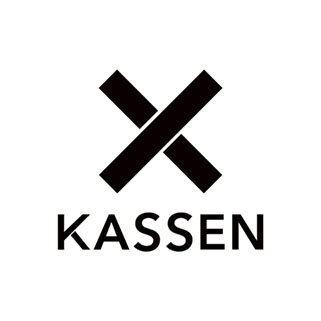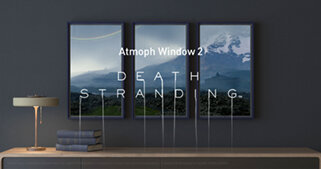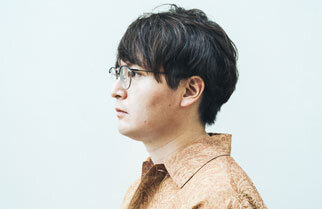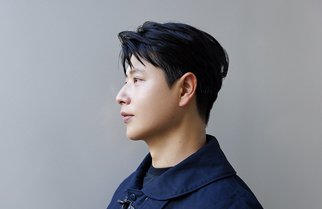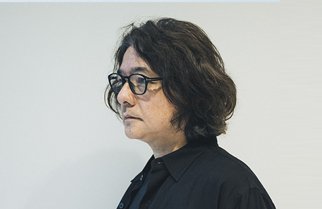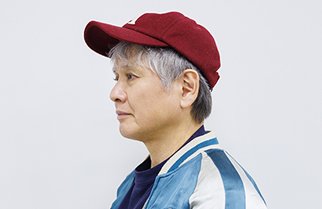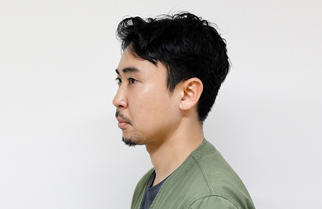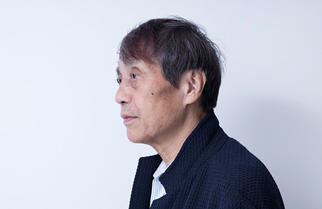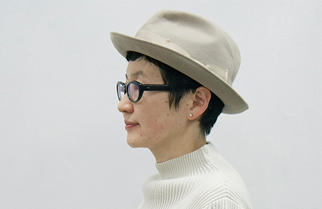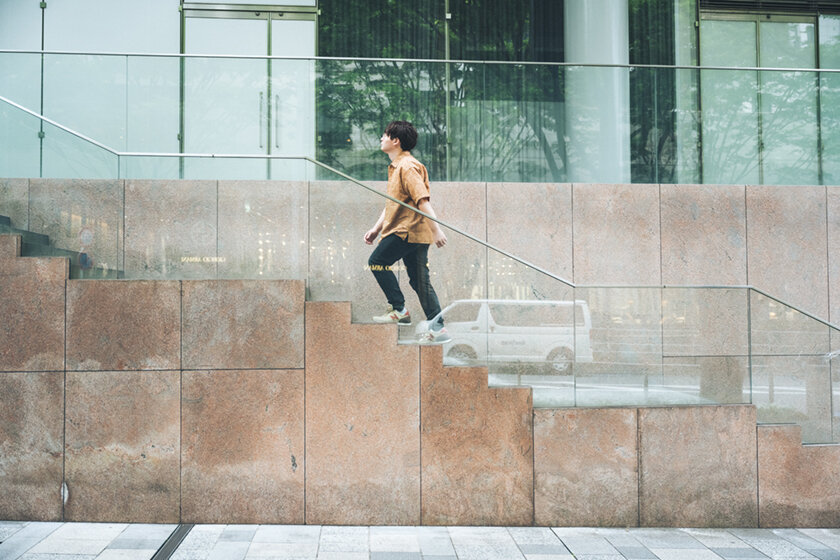
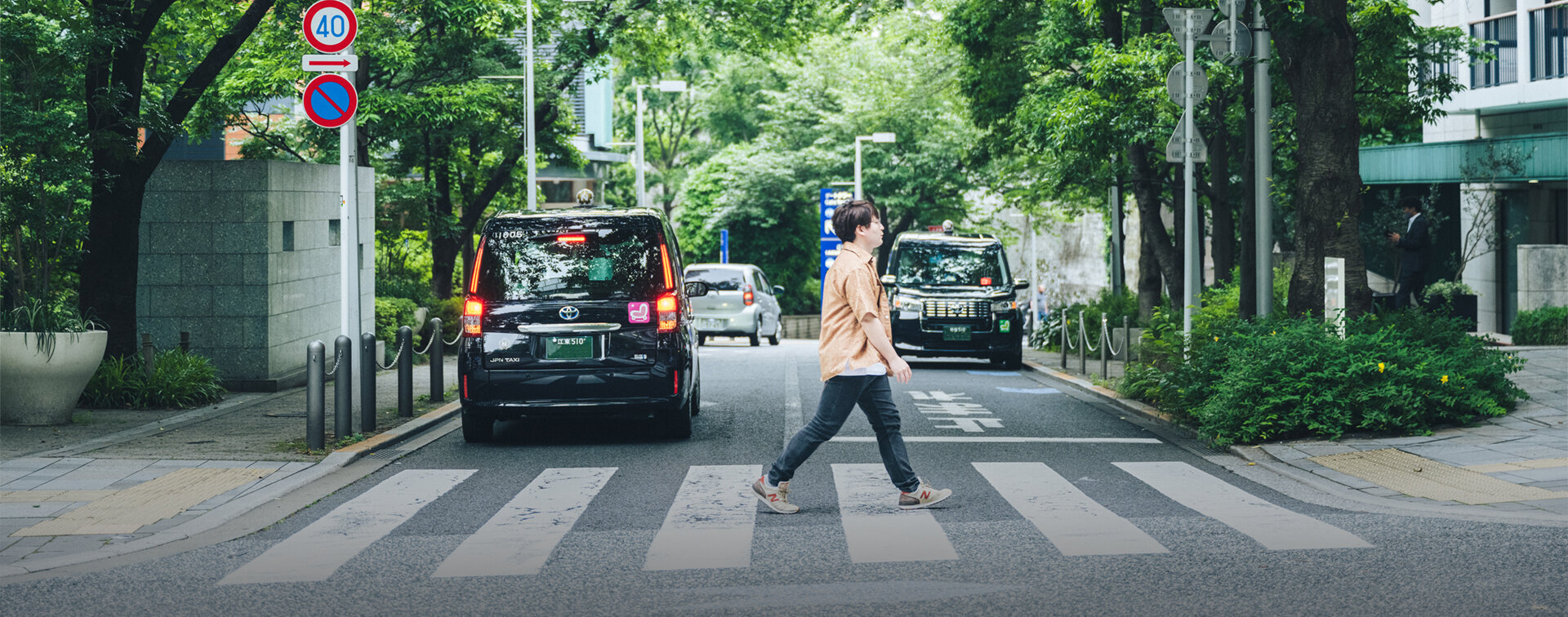
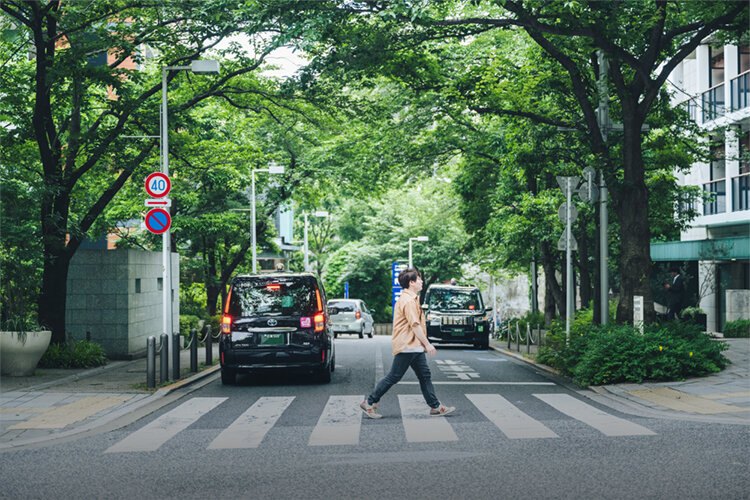
INTERVIEW
139
Takahiro OtaVFX Supervisor
A “Video Production Village” in Roppongi Where Globally Competitive Teams Can Gather
Developing a structure for “making quality” in Japan
After studying film at university with aspirations to become a film director, Takahiro Ota worked at a commercial production company before diving head-first into the VFX artist team Khaki to create music videos and ads. His extensive knowledge in a range of VFX fields gives him a broad perspective that stems from a multifaceted outlook and thought process. With this and his excellent communication skills in hand, he consistently creates video production work that surprises and inspires. In 2020, he established the VFX studio KASSEN that consistently combines new technology and teamwork for a production style that isn’t possible with freelancers or a typical big production company. We interviewed him on his history and past work, as well as the current challenges faced by the Japanese film and video industry and the future he envisions.
When I see beauty in the city, I'm unconsciously seeing it from a video production perspective
Roppongi is close to my home so I randomly stop by on a regular basis. I'm particularly familiar with the Keyakizaka area where we just did the photo shoot. One of my hobbies is to watch movies, so my wife and I sometimes come to the Toho Cinemas Roppongi Hills and eat somewhere in the area afterwards.
I like how the hill of Keyakizaka has such an ambience that you could point the camera anywhere and get a frame full of well-designed urban scenery. Although actually, as you get to either end of the hill you get glimpses of the tackier congestion of normal life [laughs]. But I sometimes think that if the look of Keyakizaka could be applied to wider areas, Japan would be a much prettier place. I once went to Romania for work, and I was enchanted by how all the streets in Europe looked as picturesque as film sets no matter which way you looked. But cities like Roppongi that have undergone calculated urban development have lots of beautiful areas, too. If in the process of that kind of development, people could work together for a unified design or something, I think the cities could look very different.
My habit of unconsciously seeing cities from a video production perspective is probably inevitable given my line of work. In 2020, I founded a VFX studio called KASSEN. VFX is short for "visual effects," and as the name suggests it involves technical effects that are visible to the eye. That includes using computer graphics to manipulate photographs, adding special effects using 3DCGI to live-action footage, or even using motion capture technology to digitally incorporate human or character movement into a 3DCGI world. The methods and technology involved are incredibly diverse, but ultimately anything that produces a visual effect is categorized as part of VFX.
KASSEN
The VFX studio founded by Ota in 2020. It mainly handles the production of commercials and music videos including direction and editing.
https://kassen.tokyo/
To increase motivation for the creators and lead "what makes the project worthwhile" in a unified direction
My role at the company is not just as CEO, but also as a hands-on VFX supervisor. Any project that involves VFX typically involves a whole bunch of specialists from a wide range of fields. Each genre is very specialized, so the process gets subdivided into many individual sections that all have different people handling them. The separate sections tend to get uncoordinated, so it's the job of the VFX supervisor to unify them. It's an administrative position, in a way.
In my case, I also sometimes double as a director. Most recently, I worked as the VFX supervisor, director, and even added the finishing touches for GEKIAWA THE STRONG, which we produced as a promotional ad for Suntory's "Natural Sparkling Water THE STRONG" product. My tasks involved proposing a plan for the technology we use, as well as organizing the methods to achieve the plan in the given timeframe. In handling the finishing touches, I calculated how much work needed to be put in the original data to ensure the quality of a finished product, and gave each artist specific instructions accordingly. My job here is to consolidate everyone's ideas of "what makes the project worthwhile" so the motivation doesn't get scattered in different directions. I explain our ideology and passion to each artist, so that they can create what's most worthwhile to them.
GEKIAWA THE STRONG
An exhilarating animated action short where the writer ARuFa gets transported to "Strong Shibuya," where he wields a "GEKIAWA shooter" to purge the town of mysterious monsters. The short was created as a promotional ad for the "Natural Sparkling Water THE STRONG" beverage product.
About a year ago I was also involved as the VFX supervisor for the music video for "Nanairo" by BUMP OF CHICKEN, which fortunately received a lot of attention. It started when Director Kyotaro Hayashi approached me asking, "I have this idea, but how can I make it happen?" We broke down the tasks, organizing who needed to do what throughout the process and put it in action. We also only had about ten days to do the post-production work, so we adopted a technique that made use of an LED wall during this shoot. There was a lot to discover during this project as we contemplated a variety of approaches.

Suddenly on the big stage. A film made with a relatively young team.
The film "The Promised Neverland", which I was a part of during my time with Khaki, was a huge project for me. Usually, being able to supervise a whole movie from beginning to end is only possible if you work at a film company and have considerable experience. Even if the director specifically wants you, in many cases the production company won't okay it if you don't have the experience. I assume this isn't unique to the film industry, but getting that "first" when you don't have experience is a challenge. In that sense, I'm grateful to have gotten that opportunity.
The Promised Neverland
The film adaptation of the popular manga by Kaiu Shirai (story) and Posuka Demizu (art) that was serialized in the Shonen Jump manga magazine with over 25 million manga volume copies sold worldwide. Ota helped bring the epic survival escape fantasy to life with his ideas and expertise in VFX technology, for which he received the live action theatrical film category Excellence Award for the 2022 VFX-Japan Awards.
My experience with The Promised Neverland has been a big influence on my work thereafter. I had never intended to be a VFX supervisor. I went to a film school with the aspiration to be a film director. But when I thought about my future, I wanted to learn a wide range of related fields first, and worked as a video production coordinator for three years after graduation. Once I started to get the hang of things, I went independent and apprenticed with the VFX artist team Khaki. I was involved with Khaki since its inception, and that was where I encountered VFX.
At Khaki, we mainly handled videos for advertisement and music videos. Each member of Khaki was incredibly skilled, and regularly worked within a limited timeframe with a small team to give maximum output. I was already used to doing the best I could do within a limited timeframe, but my experience with the movie taught me that there's a limit to what an individual can push themselves to do. In a film, everyone is thinking of how to enhance the quality of the film while efficiently communicating within a huge team. You're not working alone. You cooperate with a multitude of specialists to create the finished product. That way of creating something made a big impact on me.
A group is better than one. I wanted a big team to drive innovation.
Simultaneously, I was convinced that advertisement video production should be done in the same way as film production. Currently for advertisements, videos are most often made purely as a means to sell a product, with a fixed structure that involves the client, the production company, and the advertisement agency. There's no easy way to say this...but more often than not, enhancing the creative quality of the video is not a major priority. I think creators also feel somewhat resigned that "it's just the way things are." But we don't want to just give up, you know?
From there, I realized that if I were going to continue working with video and VFX, I wanted to create a team to work with instead of freelancing ―― the kind of team that would change the status quo. That desire grew stronger, and it's one of the main reasons I started a company. Honestly speaking, if I wanted to pursue immediate personal profit, it might be better for me to stay small and freelance by myself. But in order to get past the limit of what I can accomplish alone, I thought I should invest in the future to gather the expertise of many and aim for the skies.
More than anything, creating something is much more fun when done with others, and as a team we can balance out each other's strengths and weaknesses. Synergy happens by combining our strengths, too. The company name KASSEN actually embodies that hope. The "×" mark of the logo represents two swords clashing against each other as well as the cross mark used to indicate collaboration. In an age where freelancing is prevalent, I specifically want to create things that can't be made alone by clashing ideas together like swords to surprise the world. That's the ideology behind the creative work I do every day.
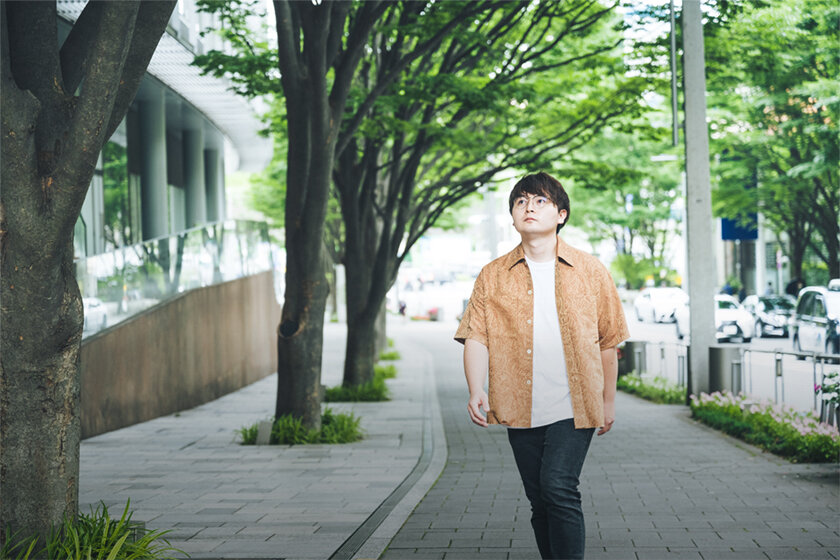
My dream is to establish a "video production village" where all kinds of studios and artists can gather
In working with video production, I established a company with the desire to create a team for innovation and to have a big organization for competing in the industry, but an even bigger dream of mine is to one day create something like a "video production village." The area around my home is being redeveloped, and I can see old buildings being torn down to become parking lots. More parking lots gradually join together, and when they become one big plot of land, a huge building rises up from that spot. As I watch the progress, I like observing how the new buildings stack up, such as noticing a newly constructed row of windows. It feels to me like the city is steadily powering up. Just like how a new city is made that way, I think it would be great to make a video production village. I envision a place with a bunch of studios and production companies where creators and artists working not just with video but in all kinds of genres can gather.
When a group of freelancers work together remotely, it can be challenging for CGI artists to send and receive heavy files or collaborate on the rendering process. If we could create a reliable system with one big data center that could be accessed remotely by each artist, they would be able to work with the same files from anywhere and that would expand the possibilities in terms of working environments.
If we could set up a data center in a location that has the right requirements in terms of internet speed and electricity and such, we could, for example, build a workcation-compatible office out in the countryside with full remote access to the data center, or expand recruitment to people who don't want to move away from remote locations. Setting up a whole bunch of machines in an otherwise ideal working environment can be a challenge, but more locations will become viable options if the data center is separate. Perhaps we could even choose Roppongi, a dream working location for many, as a place to do our work.
I do feel like working in a good location makes for good creativity. Roppongi is right in the middle of redevelopment and attracting all kinds of corporations. There might actually be some kind of benefit to making a video production village here.
It might be interesting to create an alternate universe in Roppongi using VFX
The video production village may not be realistic in the short term, but I would definitely like to do something interesting in Roppongi using VFX. For example, there's an innovative product called Atmoph Window, which is basically a window-like monitor that you can set up to show realistic outside scenery in a room with no windows. This product has a collaboration with Kojima Productions' DEATH STRANDING, in which the window presents scenery from the in-game world. It could be fun to set one of these windows up somewhere in Roppongi to allow glimpses into an alternate universe.
Atmoph Window 2
A product that can display all kinds of different worlds by setting up a window-style monitor that connects to the internet. It allows users to see more than one thousand different views from around the world, live streams, or scenery they shot themselves, whenever they wish from their own rooms. The collaboration with DEATH STRANDING offers six locations from the game that can be enjoyed through the window.
https://atmoph.com/
Current technology has enabled lights that are amazingly close to sunlight, so it might be interesting to set up a terrace beyond actual windows in an underground space to create a basement restaurant where you can dine while enjoying sunlight and outdoor scenery. Another fun idea would be to display a CG environment on the kind of large LED panel we used in the music video for BUMP OF CHICKEN's "Nanairo" to provide the experience of being in a sci-fi or fantasy world. When you're in that restaurant, you could be in a different country, out at sea, or even in desert world. It would be even more interesting if the scenery changed to match the time of day.
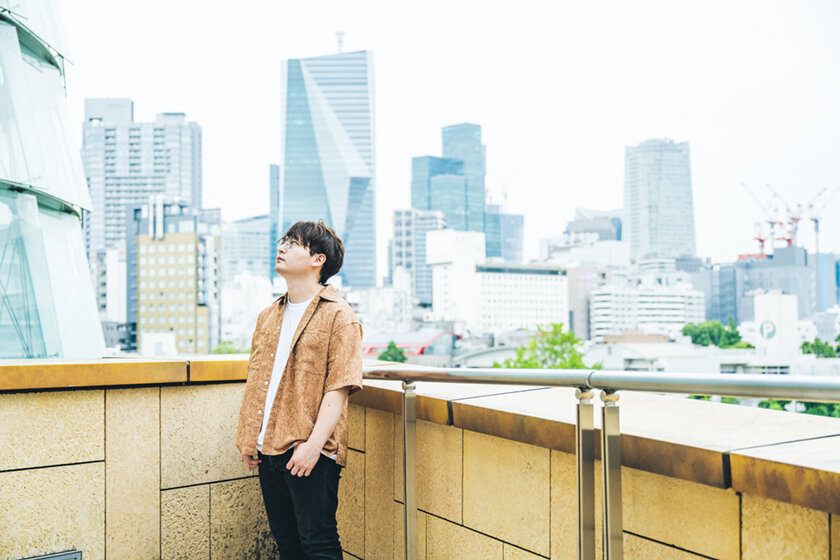
The reality is that tools actively incorporated into production around the world are not widely available in Japan
In recent years, the technology of using large LED panels to display virtual backgrounds (called in-camera VFX) has been actively incorporated into production in places like Hollywood. For example, for the Star Wars series The Mandalorian, the expansive scenery was made beforehand using CGI, which was then displayed on a huge LED panel. Filming live actors against this backdrop cuts down on the need for compositing in post-production and allows natural lighting on the actors and physical props. The use of image display on LED panels also requires the incorporation of reaI-time CGI tools such as Unreal Engine. Originally a game engine used for PlayStation and other platforms, the software efficiently reduced graphics calculations so that games could evolve to allow free exploration of high quality CG environments in real time. This technology has now been adapted to video and film. When shooting against a large LED panel, Unreal Engine moves the displayed backdrop in sync with the camera so that the background doesn't appear flat.
Unreal Engine
A 3D creation platform developed by US developer Epic Games. The software has become the global standard for game engines, enabling photo-realistic visuals and real-time generation of immersive experiences. Unreal Engine 5 was officially released on April 6, 2022, and is being used by Japanese game developers such as Nintendo and SIE.
https://www.unrealengine.com/
In the world of cutting-edge VFX, companies constantly engage in fierce competition to create new means and technologies. However, those tools are not widely available in Japan yet, so the cost can be prohibitive for use in a project. Even if you could prepare a set with an LED panel, preparing the CG environment before shooting means creating expansive scenery that covers a wide area. This is very difficult in Japan where the industry demands very quick deliveries. These tools are very beneficial on large-scale Hollywood-type production sets, but the reality is that they have yet to make sense for the small-scale shoots done in Japan.
This may be harsh but to put it bluntly, I think Japanese quality is still lacking compared to the forefront of overseas technology. I'm sure there are people here who feel stifled and understandably want to break through those constraints. I'm not saying Japanese people are lacking in ability. If anything, individual skill is high. The underlying factor is the industry environment surrounding Japanese artists. Japan's domestic market is relatively large compared to the rest of the world so most work is made for domestic audiences, which means the work is deemed worthwhile as long as it succeeds in Japan. That's good in a way, but I think that confines the work to Japan. Meanwhile, both Hollywood and the industry in South Korea, which is gaining the most momentum in Asia, are producing work for global audiences on a national strategy level. Their attitude towards creating work is just fundamentally different.
I'm not fixated on having money for luxury, but I'm sensitive about missing opportunities
Currently, more and more artists in Japan are leaving big studios to go independent. From what I have seen, many of those people become freelancers who take on jobs as individuals, or team up with several other freelancers to work as a unit. As I mentioned earlier, working alone is more satisfying income-wise, and it's easier to choose the jobs you want to do. But the more we prioritize our individual lives and working conditions, there will be fewer and fewer large companies and teams. When the number of smaller teams increase as a result where each unit consists of some artists and a few assistants, knowhow does not get accrued or passed on as easily. I think that will be a big problem when looking at the industry as a whole.
I think money is one barometer for value and I do want to get credit for the effort I put in, but I'm not personally that fixated on big luxuries. I think that's rooted in my belief that possessions and assets lose their value if you just hold on to them. On the other hand, I'm very grabby when it comes to experience, and I can't bear losing out on gaining experience when someone else gets an opportunity that could have been ours. Getting as much experience as possible for our team means the team will grow that much better. I'm not that interested in having money for luxury, but I do think I'm very sensitive about missing opportunities.
For individual freelancers and small teams that aren't companies, preparing the equipment, facilities, and staff to work on a large-scale project is very challenging. However, I do think that the increase in small teams with exceptional talent is an aspect of Japanese culture, in a way. In that sense, I think as long as we are based in Japan, it's also important to develop and adapt to uniquely Japanese approaches and frameworks instead of simply importing and mimicking overseas practices. As a potential solution, one of my big ambitions is to assemble those teams with small numbers and exceptional talent into one big entity. Preparing an environment like the video production village might be one way towards making that a reality.
There's no reason why we can't work globally. Don't give up, even if there's a widespread feeling of resignation.
I'm anxious that there is now less potential for Japan to develop new means and technologies. Most of the equipment we use has been developed overseas, and almost none of the software we regularly use is made in Japan. Still, Japan is one of the top countries in the world in terms of character content. I think it's important to carefully cultivate the precious assets that Japan does have and continue presenting them to the world. In order to do that, I believe the entire video and film industry has to shift gears, but that requires a whole lot of power more than anything. On my own, there's no way I could ever reach what I'm aiming for.
At KASSEN, I want us to keep trying to do the things that everyone else feels resigned about. If anything, looking for the things that people have given up on reveals the issues and challenges that need to be addressed. I think that's much better than not knowing what we should be doing because all we need to do then is to work towards solving those issues and challenges. That's the ideology with which we approach work every day, and I am sure that somewhere beyond those efforts lies a Japan that is globally competitive. Japan is a thriving country with good education that produces capable people, and communication is easy because many of the people are considerate. I believe there's no reason why Japanese people can't work globally.
Photo location: Roppongi Keyakizaka Street, Roppongi Hills
Editor's thoughts
In a creative industry where the number of freelancers is increasing, I am more convinced than ever that Ota-san's undertaking to create a space for passing on knowhow and to make a system for combining individuals together for the power of synergy is something that will be even more important going forward. He smartly declares, "Just work towards whatever it is and do it," of the things that others have given up on as unchangeable. With no interest in short-term gain, he passionately presses on with his eye on a bigger world. Ota-san's attitude is one that will surely change the future. I can't help but be excited about the prospect of seeing him actively competing on the global stage. (text_akiko miyaura)
RANKING
ALL
CATEGORY




